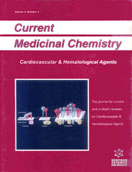Abstract
Heart failure is commonly associated with vascular diseases and a high rate of athero-thrombotic events, but the risks and benefits of antithrombotic therapy are unknown. The incidence of thromboembolism in heart failure patients (which may include stroke, peripheral embolism, pulmonary embolism) seems to be around 2%, based on the data available from several small studies. However, the incidence of thromboembolism should greatly depend upon what is being looked at in each of these studies, as it will (generally) not be individually categorised. There is very little true epidemiological data to base this figure. The pathophysiology of heart failure is complex. There are many well- recognised factors, which are associated with thrombosis in heart failure patients, such as vascular abnormalities, increased coagulability and impaired blood flow. In the past 50 years, many studies have been performed to find out if oral anticoagulation is of benefit for the prevention of thromboembolism in patients with heart failure. Expert therapeutic guidelines in the Europe and North America agree that there is insufficient evidence to recommend that antithrombotic therapy should be given to patients with heart failure, unless they have atrial fibrillation or, perhaps, a previous thrombo-embolic episode. There is a lack of evidence for any antithrombotic agent that is effective in patients with heart failure; therefore, randomised clinical trials need to be designed to test the hypothesis that patients with chronic heart failure would have benefit from anticoagulant therapy. This review summarises the incidence, potential mechanism and therapeutic approaches for the management of thromboembolism in heart failure.
Keywords: heart failure, anticoagulation, thromboembolism, coronary heart disease, low molecular weight heparin, warfarin, aspirin
 2
2













